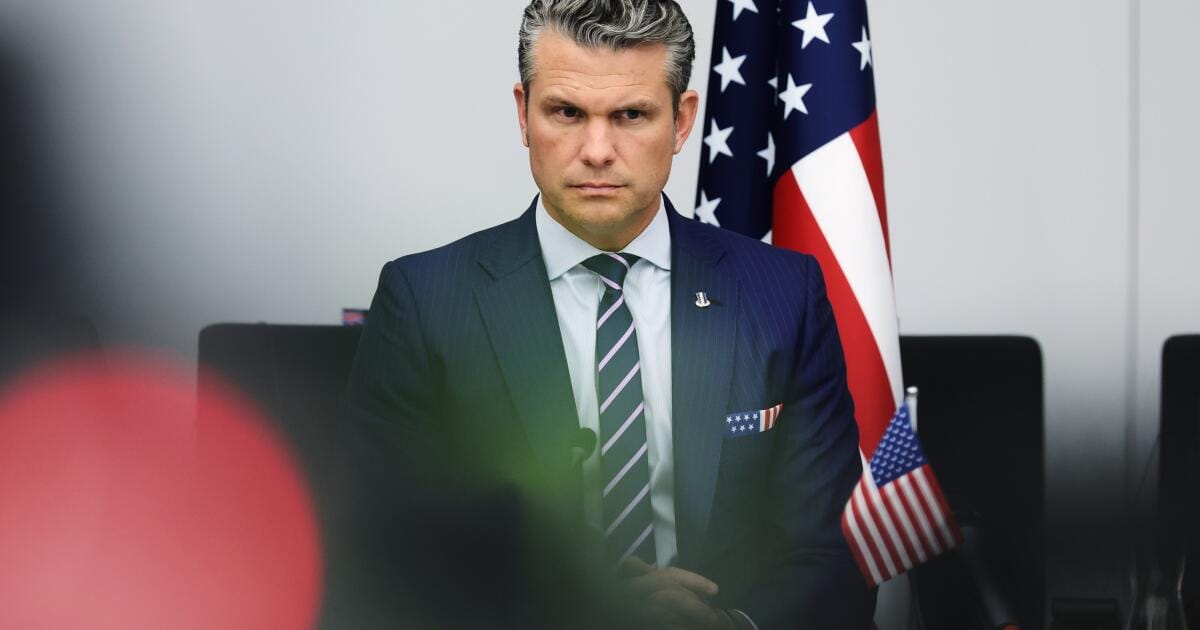WASHINGTON — The United States took survivors into custody after its military struck a suspected drug-carrying vessel in the Caribbean — the first attack that anyone escaped alive since President Trump began launching assaults in the region last month, a defense official and another person familiar with the matter said Friday.
The strike Thursday brought the death toll from the Trump administration’s military action against vessels in the region to at least 28.
It is believed to be at least the sixth strike in the waters off Venezuela since early September, and the first to result in survivors who were picked up by the U.S. military. It was not immediately clear what would be done with the survivors, who the people said were being held on a U.S. Navy vessel.
They confirmed the strike on condition of anonymity because it had not yet been publicly acknowledged by Trump’s administration.
Trump has justified the strikes by asserting that the United States is engaged in an “armed conflict” with drug cartels, relying on the same legal authority used by President George W. Bush‘s administration when it declared a war on terror after the 9/11 attacks. That includes the ability to capture and detain combatants and to use lethal force against their leadership.
Some legal experts have questioned the legality of the approach. The president’s use of overwhelming military force to combat the cartels, along with his authorization of covert action inside Venezuela, possibly to oust President Nicolás Maduro, stretches the bounds of international law, legal scholars said this week.
Meanwhile, the Navy admiral who oversees military operations in the region will retire in December, he and Defense Secretary Pete Hegseth announced Thursday.
Adm. Alvin Holsey became the leader of U.S. Southern Command only in November, overseeing an area that encompasses the Caribbean Sea and waters off South America. These types of postings typically last between three and four years.
Holsey said in a statement posted on the command’s Facebook page that it had “been an honor to serve our nation, the American people and support and defend our Constitution for over 37 years.”
“The SOUTHCOM team has made lasting contributions to the defense of our nation and will continue to do so,” he said. “I am confident that you will forge ahead, focused on your mission that strengthens our nation and ensures its longevity as a beacon of freedom around the globe.”
U.S. Southern Command did not provide any further information beyond the admiral’s statement.
For the survivors of Thursday’s strike, the saga is hardly over. They now face an unclear future and legal landscape, including questions about whether they are now considered to be prisoners of war or defendants in a criminal case. The White House did not comment on the strike.
Reuters was first to report news of the strike late Thursday.
The strikes in the Caribbean have caused unease among both Democrats and Republicans on Capitol Hill, with some Republicans saying they have not received sufficient information on how the strikes are being conducted. A classified briefing for members of the Senate Armed Services Committee this month did not include representatives from intelligence agencies or the military command structure for South and Central America.
However, most Senate Republicans stood behind the administration last week when a vote on a War Powers Resolution was brought up, which would have required the administration to gain approval from Congress before conducting more strikes.
Their willingness to back the administration will be tested again. Democratic Sen. Tim Kaine of Virginia, along with Sens. Adam Schiff, a California Democrat, and Rand Paul, a Kentucky Republican, is bringing another resolution that would prevent Trump from outright attacking Venezuela without congressional authorization.
Toropin and Mascaro write for the Associated Press.
